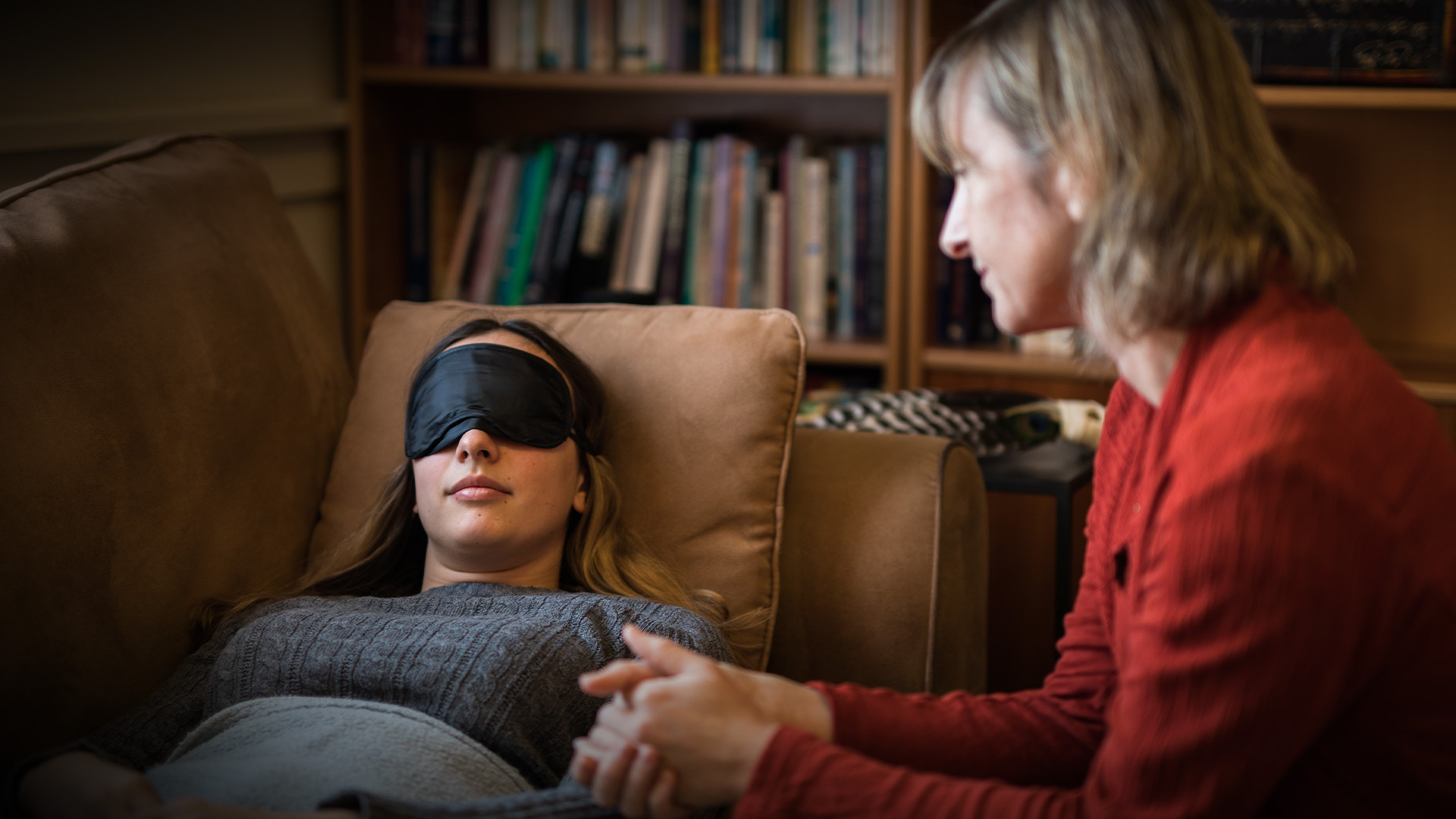Our Approach to Alcohol & Drug Treatment
Directed by Howard Kornfeld, MD, Recovery Without Walls’ addiction treatment programs are a fully confidential medical practice for various forms of chemical dependency, as well as dual diagnoses. Our approach combines cutting-edge pharmacology, exceptional psychotherapy, and integrative healing to promote comprehensive health and continuing recovery.
Serving San Francisco, the Bay Area and beyond from our office in Mill Valley, CA, our practice includes a physician, a psychiatric nurse practitioner, psychotherapists, and recovery specialists who take a holistic approach toward designing personalized treatment plans to help you end your dependence and regain control.
Want to know more? Book a free information session with our intake team to find out how we can help.
Unlike traditional residential or inpatient treatment programs, the Recovery Without Walls outpatient program is patient-responsive. We tailor our treatment to the needs of the patient, rather than a rigid schedule or protocol.
Let Our Team Tell You How It Works
Beginning treatment for addiction can feel overwhelming, particularly if this isn’t the first time you’ve been through the process, but you don’t have to do it alone.
At Recovery Without Walls, our intake process is designed to be thoughtful, supportive, and centered around you.
Our integrative approach combines evidence-based addiction medicine with holistic therapies to help you heal at the root—physically, emotionally, and spiritually. If you’re ready for a different kind of care, we’re here to listen, answer your questions, and help you take the first step toward lasting recovery.
What We Treat
Opioid Addiction & Dependence
Evidence-Based Treatment for Opioid Addiction
According to the Centers for Disease Control and Prevention, deaths from street opioids and prescription painkillers have reached epidemic levels in the past decade. The number of overdose deaths is now greater than those of deaths from heroin and cocaine combined. A big part of the problem is non-medical use of prescription painkillers, often illicitly produced—using drugs without a prescription, or using drugs just for the “high” they cause. All illicit opioids now have the potential to contain fentanyl or its derivatives, raising the risk of overdose considerably. According to the National Institute on Drug Abuse, among people aged 12 or older in 2021, an estimated 1.8% (or about 5.0 million people) suffered from a prescription opioid use disorder in the past 12 months.
Personalized Opioid Addiction Treatment Options
Recovery Without Walls offers personalized, confidential opioid addiction treatment, starting with comfortable, caring, physician-directed withdrawal management, medication management, and tapering protocols. The Recovery Without Walls opioid addiction treatment program utilizes evidence-informed medicine combined with psychotherapy and integrative healing methods including meditation, acupuncture, therapeutic massage, nutritional supplements and exercise whenever appropriate.
Dr. Kornfeld is a nationally recognized leader in the utilization of the opioid pain medication buprenorphine/Suboxone. A semi-synthetic opiate created in England in the early 1970s, Buprenorphine has been proven to provide better pain dampening effects than Vicodin or OxyContin, while minimizing the possibility of overdose and addiction. When appropriate, Dr. Kornfeld prescribes buprenorphine for his patients as a replacement for Vicodin and OxyContin.
Benzodiazepine Addiction & Dependence
Evidence-Based Treatment for Benzodiazepine Dependence
Benzodiazepines, such as Xanax, Klonopin, Valium, and Ativan are often prescribed as anti-anxiety medications. They can also increase drowsiness and promote sleep. While benzodiazepines may be useful in the short-term, they are potentially addictive and can hinder overall quality of life in the long term.
Benzodiazepines are central nervous system depressants. They work by slowing down the brain’s normal activity. Withdrawal from benzodiazepines can be difficult and may need to be conducted in a medical detoxification program. When someone stops taking benzodiazepines, there is often a rebound effect that can cause seizures or other harmful medical consequences.
Safe, Effective Benzodiazepine Addiction Withdrawal and Treatment
Recovery Without Wall’s benzodiazepine addiction treatment program includes compassionate and caring physician-directed detox, designed to make our patients as comfortable as possible. During the benzodiazepine detox process, patients are housed in local boutique hotels or residences and monitored by experienced nurses or recovery coaches. However, if our practitioners determine that a higher level of care is necessary, we also work with local inpatient rehabilitation centers.
When appropriate, we utilize time-tested methods from the Ashton Method to help long-term benzodiazepine users withdraw successfully, including treatment of protracted withdrawal symptoms and individual tapering schedules.
Recovery Without Walls offers insightful solutions to promote a deep and lasting recovery from benzodiazepine dependence. Every patient is unique, and our treatment program is personalized to meet individual needs. Ongoing treatment may include: therapy for anxiety, meditation, acupuncture, therapeutic massage, exercise, and nutritional supplements, whenever appropriate.
Sleeping Pill Dependence
Treatment for Sleeping Pill Dependency
One third of all American adults complain of insomnia or poor sleep. Many Americans take prescription sleeping pills, such as Ambien, Lunesta or Sonata, to help them get a good night’s rest.
Unfortunately, many users of sleeping pills do not realize that sleeping medication is designed for short-term insomnia and should only be taken for a brief period of time. If sleeping pills are taken regularly for more than a few weeks, the body builds a tolerance to the medication, and the drugs can stop working.
Many people become psychologically and physically dependent on sleeping medication. When they try to end their use of sleeping pills, they suffer both physical and psychological withdrawal symptoms, such as anxiety, agitation, depression, and restlessness. If patients reduce or stop their use of these medications too quickly, they may even experience protracted withdrawal symptoms, which can last for months or years after taking their last pill.
Medically Safe Withdrawal from Sleeping Pills
Recovery Without Walls provides safe, effective, medically based options to help patients end their reliance on or addiction to sleeping medications, such as Ambien, Lunesta, and Sonata. Our confidential sleeping pill addiction treatment is outpatient based, which means that patients can obtain lasting results with minimal disruption to their personal and professional lives. However, if our practitioners determine that a higher level of care is necessary, we also work with local inpatient rehabilitation centers.
We help our patients find new ways to comfortably make the transition from reliance on sleep medications to natural, restful sleep patterns. We provide exceptional counseling and integrative healing methods including: meditation, acupuncture, therapeutic massage, exercise, and nutritional supplements when appropriate.
Alcohol Abuse & Dependence
Confidential Outpatient Treatment for Alcohol Abuse & Dependence
Recovery Without Walls is an effective, medically oriented alternative to 28-day or residential facilities for alcohol rehab and alcohol addiction treatment. Because we are outpatient in nature, our patients can achieve lasting results with less disruption to their work and family lives. Our scenic locale in Mill Valley, situated near the foot of Mount Tamalpais, offers an ideal environment for recovery.
Alcohol Rehab and Addiction Treatment, Individualized for Each Patient
At Recovery Without Walls, we understand that each person is different. Our alcohol treatment program is personalized to best support every individual’s success. We utilize the latest alcohol addiction research, and as experienced medical professionals, we fundamentally understand the medical risks inherent in alcohol addiction withdrawal.
Safe, Medically Based Solutions
Our alcohol addiction treatment includes compassionate and caring physician-directed alcohol detox, specifically designed to make our patients as comfortable as possible. During the detox process, patients are lodged in local boutique hotels or residences and monitored by experienced recovery coaches or nurses. However, if our practitioners determine that a higher level of care is necessary, we also work with local inpatient rehabilitation centers.
Recovery Without Walls offers insightful solutions to promote deep and lasting alcohol recovery. Our ongoing alcohol rehab and addiction treatment incorporates exceptional psychotherapy as well as integrative healing methods, including: meditation, acupuncture, therapeutic massage, exercise, and nutritional supplements where appropriate.
We help our patients develop the mental attitude and learn the skills that they need to stay sober for life.
We support and encourage their participation in sobriety organizations including AA and Al-Anon, Narcotics Anonymous, LifeRing, Refuge Recovery, and others.
Cocaine/Stimulant Addiction & Dependence
Innovative Treatment for Cocaine and Stimulant Addiction
Cocaine and other stimulants, such as methamphetamine and prescription medications like Adderall and Ritalin, have seen a resurgence in recent years. The National Institute on Drug Abuse reports that in 2020, an estimated 1.3 million people aged 12 or older had a cocaine use disorder, while approximately 1.5 million people struggled with methamphetamine addiction. These powerful stimulants can quickly lead to dependence, causing significant harm to an individual's physical and mental health, relationships, and overall quality of life.
Holistic, Patient-Centered Stimulant Addiction Treatment
At Recovery Without Walls, we understand that each person's journey with stimulant addiction is unique. Our experienced team of compassionate professionals is dedicated to providing personalized, comprehensive treatment plans that address the complex nature of cocaine and stimulant addiction. Our integrative approach combines evidence-based medical interventions, cutting-edge pharmacology, and holistic therapies to support the mind, body and spirit in the healing process.
Our stimulant addiction treatment program begins with a thorough assessment to identify each patient's specific needs and challenges. We offer expert medical supervision for safe and comfortable withdrawal management, along with medication-assisted treatment options when appropriate. Patients engage in psychotherapy sessions, exploring the underlying causes of their addiction and developing essential coping skills. To promote whole-person healing, we offer the option to integrate complementary modalities such as mindfulness meditation, yoga, acupuncture, and nutritional counseling. Our goal is to empower patients to break free from the cycle of addiction, build resilience, and cultivate a fulfilling, vibrant life in recovery.
Ketamine Addiction & Dependence
Compassionate Care for Ketamine Addiction
Ketamine, a dissociative anesthetic with powerful psychoactive effects, has emerged as a concerning substance of abuse in recent years. While ketamine has shown promise in treating certain mental health conditions when administered under medical supervision, unsupervised recreational use can lead to addiction, cognitive impairment, and severe bladder and kidney problems. The Drug Enforcement Administration reports that ketamine-related emergency department visits have increased significantly since 2006, highlighting the need for effective, accessible treatment options.
A Holistic Approach to Ketamine Addiction Treatment
At Recovery Without Walls, we recognize the unique challenges faced by individuals struggling with ketamine addiction. Our compassionate team of experts is committed to providing a safe, supportive environment where patients can begin their journey towards lasting recovery. We offer a comprehensive, personalized treatment approach that combines evidence-based medical care, innovative pharmacological interventions, and integrative therapies to address the physical, emotional, and spiritual aspects of ketamine addiction.
Our ketamine addiction treatment program starts with a detailed assessment to develop a tailored plan that meets each patient's specific needs. We provide expert medical supervision for safe withdrawal management and explore appropriate medication-assisted treatments to alleviate symptoms and promote stability. Patients participate in individual and group therapy sessions, where they gain insight into their addiction, develop essential life skills, and build a strong support network. To foster whole-person healing, we integrate complementary modalities such as art therapy, meditation, yoga, and nutritional counseling. Our multidisciplinary team works collaboratively to empower patients to overcome ketamine addiction, heal from past traumas, and cultivate a life filled with meaning, purpose, and resilience.
Specialty Treatment Methods
Critical Importance of buprenorphine (Suboxone)
Advanced Pharmacology to Alleviate Addiction and Pain
Dr. Howard Kornfeld of Recovery Without Walls has pioneered the use of buprenorphine/Suboxone in the United States for the treatment of both addiction and chronic pain. He first became aware of the drug in the 1990s, realized its potential to help his patients, and published widely read articles introducing innovations in its use. Under his guidance, the Alameda County Medical Center’s Pain Management and Functional Restoration Clinic introduced buprenorphine to Oakland’s premier trauma center and cultivated several of California’s leading advocates for the use of buprenorphine in the state’s emergency departments.
Buprenorphine, also known as Suboxone or Subutex, in addition to being commonly prescribed for addiction, is an effective painkiller with a greater margin of safety against both overdose and addiction than other prescription pain medications, such as Vicodin and OxyContin. Developed in England in the early 1970s, buprenorphine is a semi-synthetic opiate that, unlike heroin and other opiate derivatives, does not make its users euphoric and is unlikely to cause a lethal overdose by depressing respiration. Buprenorphine/Suboxone is especially helpful for patients with chronic pain who do not respond well to other opioids, or who are at risk of opiate dependency.
How Does buprenorphine/Suboxone Work?
Buprenorphine/Suboxone is a partial agonist on the opioid receptor in the brain, which means that unlike full agonist drugs like heroin, OxyContin, or Vicodin, there are fewer side effects associated with buprenorphine/Suboxone. If we imagine a brain receptor as a chair, buprenorphine/Suboxone only half sits in it, while other full agonists occupy it completely. Although buprenorphine/Suboxone is only a partial agonist for addiction pain, it is actually, in practice and over time, more effective.
At Recovery Without Walls, Dr. Kornfeld prescribes buprenorphine and Suboxone for many of his patients who suffer from chronic pain. He has found that buprenorphine has fewer side effects than other opioids, enabling his patients to lead more productive, healthier lives. He is one of few doctors in the United States who prescribe buprenorphine (Suboxone) as a frontline medicine for intractable pain.
Baclofen for Alcoholism
Baclofen for Alcoholism
Recovery Without Walls specializes in advanced pharmacology for the successful resolution of alcoholism, drug addiction, chronic pain, and mental illness. By staying abreast of scientific discoveries in America and abroad, Dr. Kornfeld and the rest of the RWW team can offer cutting-edge, evidence-based care for even the most challenging cases. One facet of our program is a particularly innovative treatment for alcohol use disorder. Read on to learn about our use of baclofen for alcoholism recovery.
Baclofen Uses
Baclofen is a muscle relaxant prescribed for persistent spasms, cramps, or tightness. It is known by the brand names Fleqsuvy, Ozobax, Gablofen, and Lioresal. Unlike similar medications, baclofen is not a narcotic, and does not act on the brain’s opioid receptors. Instead, it alters the release of neurotransmitters to reduce electrical activity in the central nervous system, specifically within the brain and spinal cord.
For decades, most doctors saw baclofen as an older drug approved for medical use in the late 1970s. This perception changed when French-American cardiologist Olivier Ameisen published The End of My Addiction. Ameisen’s book details his battle with alcoholism, which he chose to treat on his own. By experimenting with baclofen, he experienced relief from cravings and other symptoms. This book sent ripples throughout the recovery community. In the 2000s, baclofen gained new life as a safe, incredibly effective treatment for alcoholism.
Have Questions? We're Here to Help
Whether you’re exploring treatment options for the first time or looking for a more personalized approach, we know you may have questions. about our services, how we work, or what to expect. We welcome your curiosity.
Recovery Without Walls is a small, specialized medical practice offering innovative care in addiction, pain management, and integrative mental health. Our team is here to support you with clarity and compassion every step of the way, from your first inquiry to your ongoing treatment plan.
About Insurance and Payment
While we don’t currently work directly with insurance providers, we are able to provide all necessary documentation and receipts to help you submit claims to your insurance for partial reimbursement on out-of-network benefits, when eligible.
Our goal is to make high-quality, integrative care as accessible as possible without compromising the attention, time, or innovation your healing deserves. If you have questions about our costs, documentation, or how to navigate the reimbursement process, our staff is happy to assist.

Dual Diagnosis Treatment
People suffering from drug or alcohol addiction often experience mental health disorders. Likewise, people who suffer from mental illness are likely to turn to drugs or alcohol in an attempt to cope with their symptoms.
When you are battling both addiction and a mental health issue, we refer to that as a dual diagnosis. At Recovery Without Walls, we offer you personalized, confidential addiction treatment combined with mental health services such as psychotherapy and integrative healing methods to effectively address your dual diagnosis.
Symptoms of Co-Occurring Disorders
The best solution for dual diagnosis is an integrated approach, so you can receive care for both your diagnosed mental illness and your substance use disorder. At Recovery Without Walls, our personalized approach will determine your specific treatment plan.
A few common elements of dual diagnosis treatment include:
1
Psychotherapy
Cognitive behavioral therapy (CBT), in particular, can help you learn how to cope and change ineffective patterns of thinking, which may increase your risk of substance use.
2
Holistic Treatment
Recovery Without Walls utilizes an integrated approach that combines traditional wisdom with evidence-based medicine. Our provider network includes experts in acupuncture, massage therapy, detox, and more.
3
Medications
Our approach at Recovery Without Walls integrates leading-edge pharmacology with exceptional psychotherapy and nutritional support to provide you with the most effective healing approach for your physical and mental health as well as your continuing recovery.
4
Proper Nutrition and Supplementation
It is difficult to foster good mental health when your physical health is suffering. Our team works with you to develop a diet that includes all the appropriate nutrients to meet your needs. We also encourage our patients to exercise regularly as a part of their recovery.

Medically
Supervised Detox
Ongoing substance abuse activates significant physical and chemical changes within the body and brain. Therefore, to begin recovery, it is necessary to remove all traces of drugs and alcohol. Medically supervised detoxification is the first step in treatment for addiction.
A Comfortable Detox Experience
Many people resist treatment because they are concerned about the withdrawal symptoms which can occur during detoxification. Tremors, hallucinations, nausea, seizures, and disorientation may occur when a person attempts to stop using drugs or alcohol at home. Symptoms may range from uncomfortable to life-threatening for people who try to quit “cold turkey” without clinical intervention.
Many people resist traditional drug rehab facilities and addiction treatment centers because they are concerned about the withdrawal symptoms which can occur during detoxification. Tremors, hallucinations, nausea, seizures, and disorientation may occur when a person attempts to stop using drugs or alcohol at home. Symptoms may range from uncomfortable to life-threatening for people who try to quit “cold turkey” without clinical intervention.
In a medically supervised setting, these symptoms can be negated through a combination of innovative pharmaceuticals administered according to individualized treatment plans. This results in a safe and comfortable detox experience for people addicted to barbiturates, benzodiazepines, or alcohol.
Reach out to our intake team to learn more about our compassionate detox process.

The Highest Quality of Care
The team at Recovery Without Walls is comprised of a wide range of experts in the field of addiction treatment, including an MD, a DO, and a dually licensed RN (registered nurse) and psychiatric-mental health nurse practitioner (PMHNP). With our broad spectrum of clinical expertise and intensive outpatient programs, we are able to develop individualized programs that meet the needs of each patient who walks through our doors.

Take the First Step
At Recovery Without Walls, we provide connections to medically supervised detox services throughout the San Francisco Bay Area for those who have developed a chemical dependency. Our substance abuse treatment services are specialized for dual diagnosis, chronic pain, and mental health care concerns. For more information about our Marin County detox services, please contact our Admissions staff today.


